Chin-Sun Lee Interview
Interview with TWFest 2025 Fiction Judge, Chin-Sun Lee
By Reine Dugas
What is it about a story that first captures your interest?
This is a hard thing to quantify, because every story is different and likewise, every beginning. That said, within the first few sentences, I need to feel a certain surefootedness; a sense that, Oh, I’m in capable hands with this author. I also look for specificity of place and character that serves the story. I don’t need to know the minutiae of a setting, however beautifully described, or every contour of a person’s face unless they propel the narrative. But I do want to see the world of the story.
What are you always happy to see in a short story? (a symbol, theme, place, literary device)
I love the combination of humor with pathos. Probably the best, most succinct example of this would be Tobias Wolff’s short story, “Bullet in the Brain.” I’m also thinking of writers like Jenny Offill, Sigrid Nunez, Denis Johnson, and Lucia Berlin. And something subverted, transgressive, or otherwise unexpected always piques my interest, as long as it’s organic to the story and not inserted for shock value.
What advice do you have for new writers?
Read as much as you can, from the canonical to contemporary, experimental to traditional, and across genres and cultures. Find your literary community—these are the people who will carry you and cheer you on. Accept rejection, as it is a constant, and be patient. Lastly, and most importantly, know that the act of writing is the reward itself.
What have you been reading lately?
In the last year, I’ve read so many books related to either promoting my debut novel or informing my current project, but I’m finally coming into a time where I can read without an agenda, for pure pleasure. Recently, I’ve been reading slim but potent books by female writers, such as Gwendolyn Riley’s My Phantoms and First Love, Jenny Offill’s Weather, and Han Kang’s The Vegetarian.
How would you describe the New Orleans writing scene/community?
I find the writing community here so welcoming and open! We are small but mighty, and my experience so far is that we acknowledge, support, and encourage each other. When I first moved here eight years ago, I didn’t know any writers, so my first introduction to the writing community was through attending the Dogfish reading series, which is sadly no more. But it set the tone for the communal warmth and general vibe of the writing scene here, which is pretty chill, unpretentious, and friendly—much like the city itself.
How can writers connect with other writers here in the city?
A great way to meet other writers is by attending author or other writing-related events around town. We have LMNL’s monthly reading series and the Unlikely series for poets, as well as ongoing author events at local bookstores like Octavia, Blue Cypress, Garden District, Frenchmen Art & Books, and Baldwin Books. Baldwin often hosts free Coffee & Craft workshops, and Lowpoint, a coffee shop and tiny bookseller in Bywater, has also hosted reading events. Finally, the New Orleans Writers Workshop offers a variety of in-person courses across genres at reasonable rates.
Can you tell us about what you’re working on now?
I’ve just finished revising my second novel, Soon You’ll Be Just Like Us, a mystery thriller and medical sci-fi set in the near future, where a radical cult of activist feminists terrorizes the Los Angeles beauty and wellness industries. Koreatown extends from Downtown to the San Fernando Valley and cosmetic surgery is ubiquitous, with prominent plastic surgeons from Seoul commandeering the entertainment and media industries. Ultimately, it’s all a front for more radical transformations, including reproductive cloning. The novel examines the relationship between the body and consciousness, feminism and patriarchy, and climate change under capitalism.
Learn more about Chin-Sun Lee and her work at chinsunlee.com.

